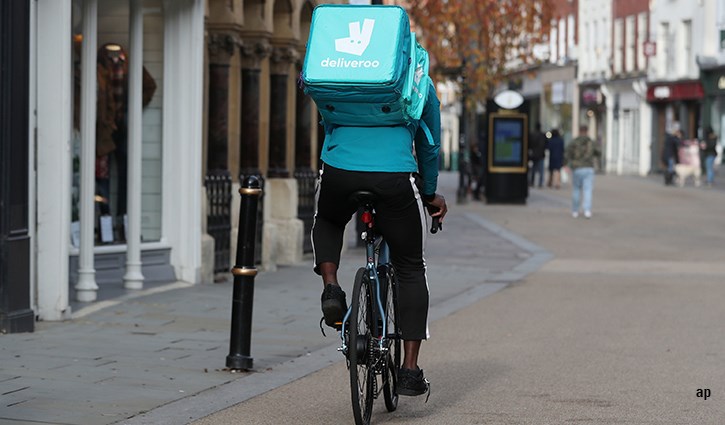Holly Black: Welcome to Morningstar. I'm Holly Black. With me is Ioannis Pontikis. He is an equity analyst at Morningstar in Amsterdam. Hello
Ioannis Pontikis: Hello. Thanks for having me.
Black: So, Ioannis, you've been looking at the online food delivery sector. It's been an important one to a lot of households in lockdown over the past year. Do you want to tell us what you've been looking at?
Pontikis: Yeah. So, the first thing that we look at is the evolution of the food delivery, or the online food delivery space over the years. And it might seem odd, but this space has been around since really the early 2000s. We began with Just Eat was founded in 2001 in Denmark, Takeaway.com in 2000 in Netherlands, Grubhub in 2004 in the US But despite this early start, online penetration of the delivery and takeaway markets has been relatively low. So, if you look at the UK, for instance, market which is perceived as the most advanced one, we see a penetration of around 25% of total delivery takeaway markets. In other countries, we see around 10% to 15%. So, lots of room to grow.
Black: So, are these companies profitable? How do they actually make money?
Pontikis: Yeah. That's a good question. Actually, it's top of mind for many investors nowadays. So, the short answer is not all food delivery orders are created equal. So, in our framework, we identify certain structural characteristics that if present in a certain market, can render the unit economics of food delivery sustainable. So, just to give you an idea, these characteristics are restaurant population densities, the level of market concentration, wages and employment flexibility, the existence of or not of delivery culture, which kind of drives frequency of orders, and maybe most importantly, diners' willingness to pay delivery fees, and the tipping culture across regions.
Black: So, I know Morningstar analysts love to see a company with an economic moat. Can these companies have moats?
Pontikis: Yes, we do think – we introduced our moat framework in this report for food delivery. There, we try to assess the existence of competitive advances, as you mentioned, by analysing four main elements – the nature of the market, so is it a marketplace driven market, is it a logistic driven market, the nature of the food delivery operator, the strength or position and the structural characteristics of the market as it relates to delivery. And we briefly touched on it early on. So, the there are two main conclusions, if I may, draw from this analysis. The first one is that leading marketplace driven food delivery companies exhibit strong competitive advantages based on network effects, cost advantages and switching costs. And the creation of sustainable competitive advantages for integrated delivery operators is tougher, but achievable.
Black: And one of the big things that puts these companies in the news media at the moment is this thing about gig workers and their rights. Does that impact the business case for these companies?
Pontikis: I mean, this is a very valid concern from investors. But we don't think this poses an existential threat to those businesses, to those companies' business models. We do, however, think that because of the difference in the attractiveness of unit economics between the contractor-based model, so the gig economy, and the fully employed model, we do think that in terms of valuation, the downside risk is significant.
Black: Okay. So, let's look at a couple of the key players in the space who's been catching your attention.
Pontikis: So, the key players in Europe, for instance, are Just Eat Takeaway, Uber Eats and Deliveroo, Delivery Hero as well in some of the countries. These are typically the companies you see competing against each other across the majority of European countries. Most recently, in the private side of things, we see Wolt and Glovo emerging as very important competitors in the space.
Black: And what is your top stock pick in the sector?
Pontikis: So, our top pick in the sector is Just Eat Takeaway. We see significant upside from current depressed price levels. We have a very strong conviction in the name. Our investment thesis is really underpinned by a combination of things. First, high sustained margins and maturity, highly concentrated markets, sticky client restaurant relationships, relatively low capital intensity and a significant and untapped addressable market across regions.
Black: Ioannis, thank you so much for your time. For Morningstar, I'm Holly Black.





























